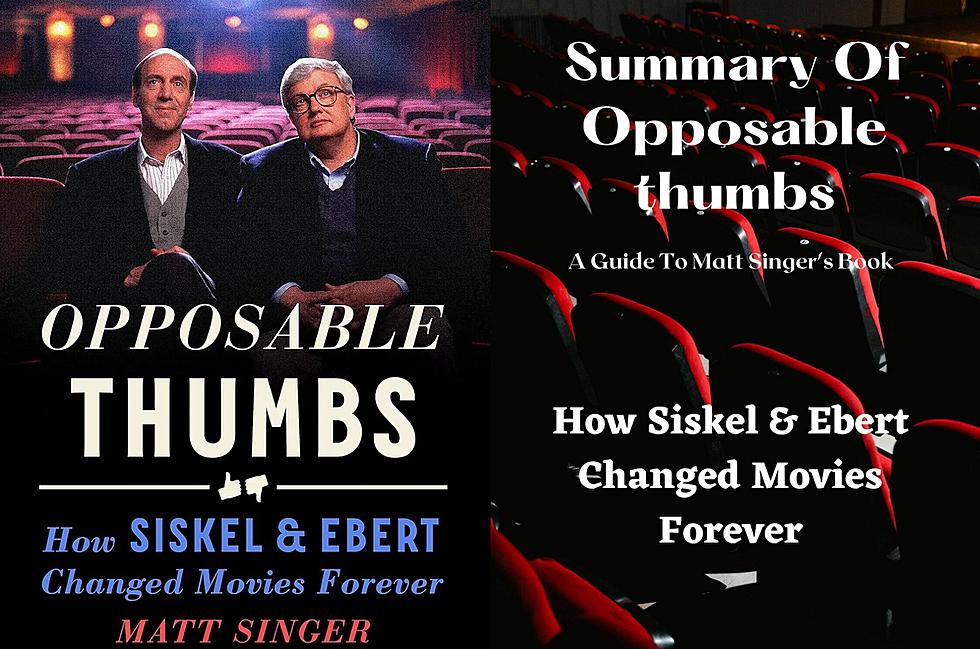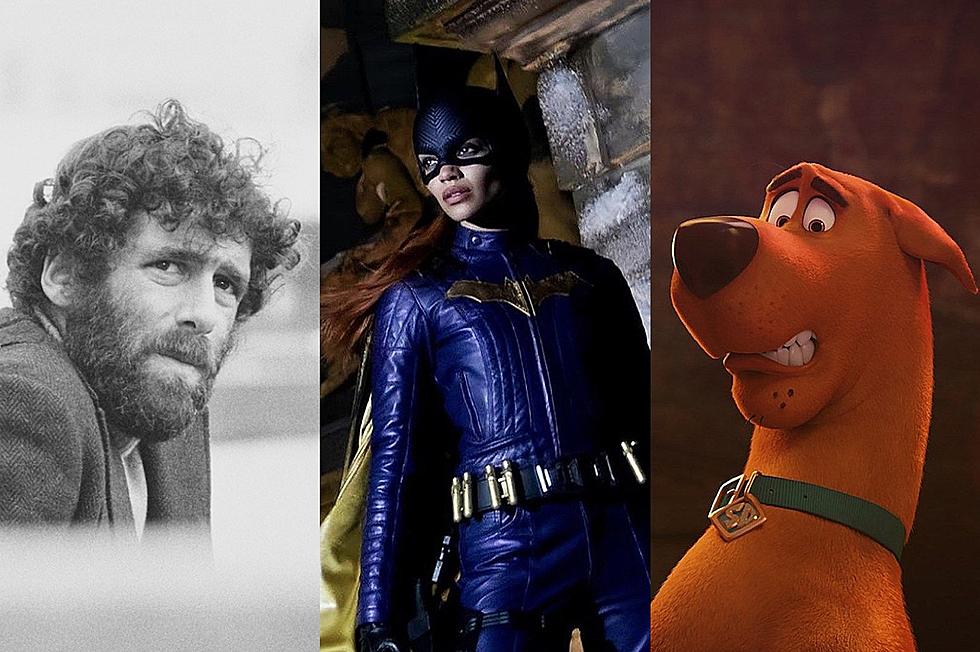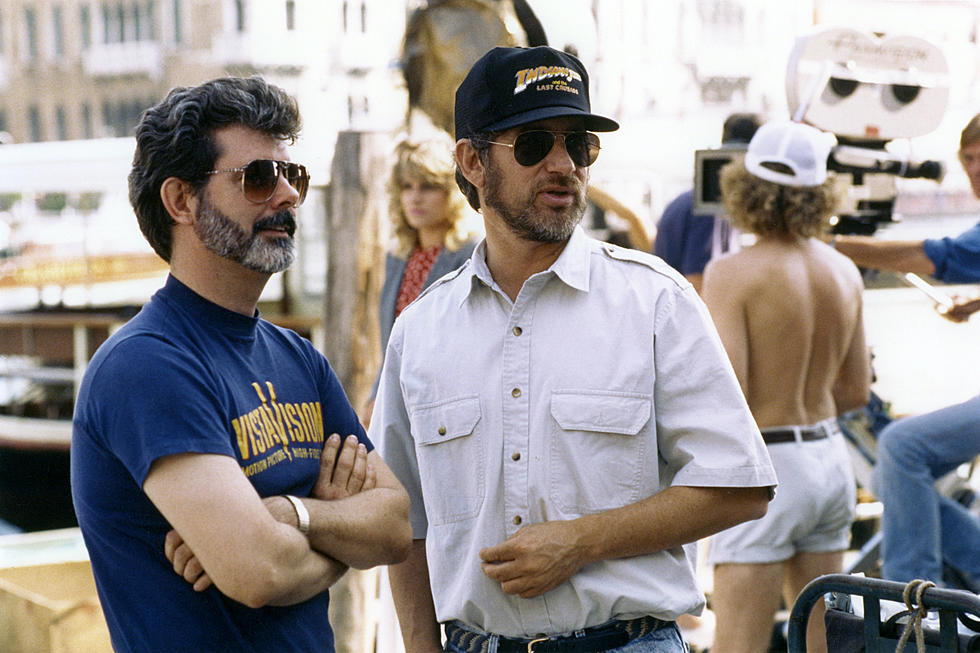
Someone Used AI To Rewrite My Book. It’s So Much Worse Than I Could Have Imagined
April 1994 was not an especially memorable time for movies — or an especially memorable time for Siskel & Ebert. One week that month covered the following five films: Bad Girls, The Inkwell, Naked in New York, Brainscan, and Surviving the Game. That’s the opposite of an all-star lineup. That’s like the movie equivalent of the starting nine for the 1962 New York Mets.
The only movie in the bunch that is slightly remembered is Brainscan, a sci-fi horror film that turned out to be the first feature from future Se7en and The Killer screenwriter Andrew Kevin Walker. It follows a teenage video-game enthusiast (Edward Furlong) who discovers that the violence he commits in a hyper-realistic game also takes place in the real world.
Neither Gene Siskel nor Roger Ebert were impressed, calling Brainscan “repellant” and comparing its central villain, The Trickster, to a “low-rent Beetlejuice.” (Siskel and Ebert gave two thumbs down to Beetlejuice, so that was even more of an insult than it sounds.) Ebert, always the more forgiving of science-fiction movies of the pair, did at least concede that the central premise of Brainscan asked a potentially frightening question.
“If computers can create a convincing level of virtual reality,” he wondered, “how will you be able to tell the real world from a digitized one?”
That quote has been bouncing around in my head this week, after I read an article in Wired about the rise of “scammy AI-generated book rewrites” that are “flooding Amazon.” The piece details how AI technology “has supercharged the spammy summary industry,” wherein folks looking to make a quick buck can create an AI-generated knockoff of a book in a matter of minutes with minimal effort, producing what one expert quoted by Wired compared to a “a KidzBop version of the real thing.”
“It’s common right now for a nonfiction author to celebrate the launch of their book, then within a few days to discover one of these summaries for sale,” according to a publishing expert interviewed by Wired.
I wrote a book last year about Siskel & Ebert. Sure enough, when you search my name and my book’s title on Amazon, the first result is my work, Opposable Thumbs: How Siskel & Ebert Changed Movies Forever. The second non-sponsored result is something called SUMMARY AND ANALYSIS OF Matt Singer’s Book OPPOSABLE THUMBS: How Siskel & Ebert Changed Movies Forever by an author named Shirley Miller.
Miller’s creation, whose cover image is clearly designed to evoke the beautiful photograph of Siskel and Ebert that adorns my own book, is available in either a paperback for $11.99, or on Kindle for $6.99. If you subscribe to Amazon’s Kindle Unlimited service, you can read her “book” for free.
READ MORE: Watch Siskel and Ebert Do Karaoke
Infuriated and, as always, deeply masochistic, I decided I need to read Ms. Miller’s version of my work. I expected to find a bland, homogenized description of Siskel and Ebert’s relationship and their television show — akin to a subpar version of the CliffsNotes I sometimes bought in high school when I was struggling through a particularly impenetrable old novel. But Shirley Miller’s book was so much worse than that — and really to call it a book at all is an insult not only to my book but to literally every legitimate publication written by an actual person in the entire history of human civilization.
I should say that I’m not necessarily upset that someone used artificial intelligence to do this. Does AI have some genuinely dystopian implications? Heck yeah. But I could also be convinced that in some instances it could have reasonable, non-horrifying uses. I’ve tinkered with AI on this website before myself.
However, this is not a matter of an artificial intelligence summarizing my words in a clear, lucid manner. This “summary” (And analysis! Two for the price of one!) is 20 pages of worthless word salad. Artificial? Absolutely. Intelligence? Not so much.
See for yourself. Here is are the first two sentences of Miller’s “Introduction.”
After reading those paragraphs and letting out a four-minute-long howl of rage, I recognized that this wasn’t really written, by an AI or anyone else. It was just cut and pasted from somewhere with words substituted to (very badly) disguise what they were doing. “Performer” was a bizarre replacement for my last name; “Wonder’s Bug Man” was a nonsensical version of the title of my first book, Marvel’s Spider-Man: From Amazing to Spectacular - The Definitive Comic Art Collection.
Once I figured that out, it wasn’t hard to work backwards and find the text they had stolen. Turning “Vocalist fights that Siskel and Ebert democratized film assessment” back into the way a sane human being might phrase it — “Singer argues that Siskel and Ebert democratized film criticism” — I immediately found the original source of these words. It’s the Publishers Weekly review of my book. And unlike Miller’s summary (and analysis!), which costs up to $12 on Amazon, you can read the actual, non-gobbledegook version on PW’s website for free.
The scamming doesn’t end there. The second half of the summary (and, sigh, analysis) include this paragraph.
“Is it likely that you are listening to Netflix?” Shirley, you can’t be serious.
Again, if you care enough to do even a cursory amount of Googling, it’s easy to find where this material originates. In this case, Miller copied the top reader review of Opposable Thumbs on Goodreads. It’s word for word — with a stray phrase here or there replaced by a synonym.
The credited author of this summary (and analysis) is Shirley Miller, whose Amazon author page claims she is “a mother and a nutrition expert” who “has researched the effect of food on health for over 15 years.” But most of the “books” credited to Miller have nothing to do with nutrition or health. She recently wrote a summary — which no doubt contains much analysis — of Sam Wasson’s The Path to Paradise: A Francis Ford Coppola Story. I guess when she’s not researching the effect of food on health Shirley really loves cinema!
I couldn’t find any concrete evidence of this Shirley Miller’s existence beyond the bounds of her Amazon page. I would assume it’s a pseudonym if for no other reason than if I created this junk, I would never want my actual name on it — not for legal reasons, but out of shame. I do know that Shirley Miller’s headshot is not a woman named Shirley Miller. It’s just a stock photo of a “portrait of happy and relaxed senior woman”:
I get it. If I was cranking out dozens of worthless Kindle books for a living, I would probably be happy and relaxed too.
Wired’s article says that after they contacted Amazon about a specific example of a scam summary book (my mistake — a scam summary and analysis book), the site delisted it. They also provided a statement that read “While we allow AI-generated content, we don’t allow AI-generated content that violates our Kindle Direct Publishing content guidelines, including content that creates a disappointing customer experience.” I wasn’t sure how to complain directly to Amazon about my disappointing customer experience, so I wrote this article instead.
Needless to say, I am pretty disappointed! And also angry and slightly embarrassed that my name is even tangentially attached to such a shoddy piece of garbage. I would hope that anyone who would buy this summary (slash analysis, so much analysis you guys) would recognize that my book was a passion project that took years of my life to research, write, and edit. It also contains words strung together into coherent sentences, unlike this mess, which is an attack on the very concept of the written word.
But maybe they wouldn’t? In that otherwise unremarkable Brainscan review from April of 1994, Roger Ebert wondered about a world where computers could create a level of reality so convincing it could fool our senses. With the rapid advancement in technology like CGI and deepfakes, that fear is even more timely now than in 1994. And as depressing as this experience was, I’m now struck with an even more disturbing thought: If this is what it looks like when an artificial intelligence “writes” a book, what happens when all the actual authors and journalists lose their jobs and are replaced by AI?

Movies That Were Originally Supposed to Have Much Darker Endings
More From ScreenCrush









